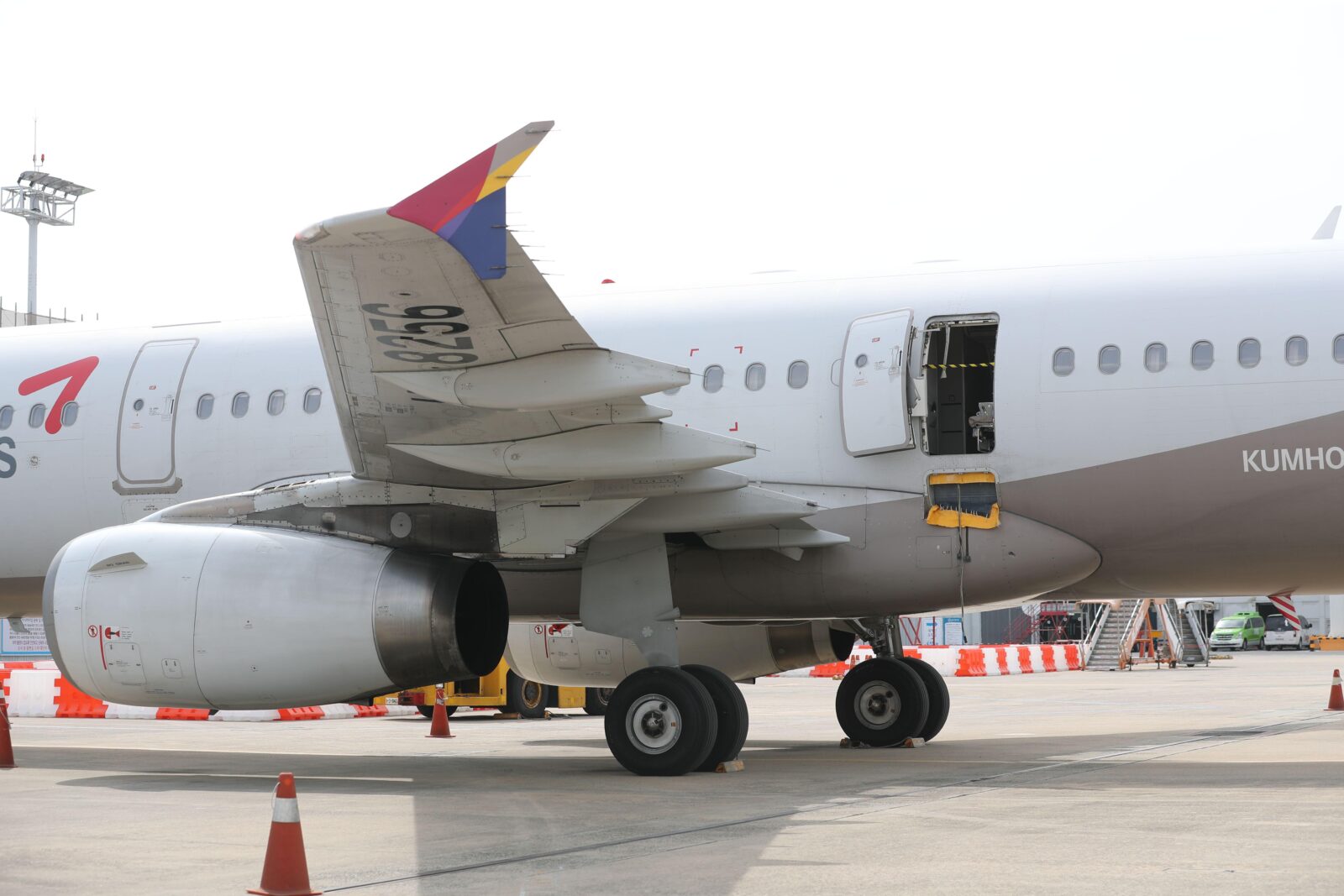
Asiana Airlines says it will no longer let passengers occupy certain emergency exit row seats on its fleet of Airbus A321 aircraft after a passenger managed to open an aircraft door while the plane was still in the air on Friday.
The South Korean carrier said it would block off the seat immediately adjacent to an emergency exit door on its 14 Airbus A321-200 jets where there is no flight attendant guarding the door, following the incident aboard a flight from Jeju to Daegu.
The affected seat will be blocked off for the foreseeable future even if the flight is booked to capacity, although neighbouring seats which remain within hands reach of the emergency exit will still be sold and occupied by passengers, the airline confirmed.
Asiana operates A321-200 aircraft will several different seating configurations, but the affected aircraft have four sets of doors. In the Asiana’s configurations, only one of those eight doors doesn’t have a flight attendant jumpseat close by.
The unnamed suspect, who is aged in his 30s, managed to open the door when the plane was just 800 to 700 feet above the ground. He faces charges of violating an aviation security law and, if found guilty, could be sent to prison for up to 10 years.
In order to prevent passengers from inadvertently opening the door, the emergency exit has a cover over the control handle, but this can be easily removed. In the event of an emergency, the mid-cabin doors are motorized, making it far easier for the door to be opened in flight when at low altitude and when there is no pressure differential with the outside.
The man told police that he was under a lot of stress after recently losing his job and that he wanted to get off the plane quickly. A local court issued a warrant for the man, allowing the police to keep him in custody for longer as he is considered a flight risk.
Seats immediately adjacent to emergency exits on other aircraft remain on sale and can still be occupied, Asiana confirmed – presumably because these exits have a flight attendant in close proximity.
Budget carrier Air Seoul also said it would restrict access to certain emergency exits on its A321s, while Air Premia and Jin Air said they were still considering whether such a measure was necessary.
South Korean aviation regulators said the decision to block certain seats was down to the airline.
Related
Mateusz Maszczynski honed his skills as an international flight attendant at the most prominent airline in the Middle East and has been flying ever since... most recently for a well known European airline. Matt is passionate about the aviation industry and has become an expert in passenger experience and human-centric stories. Always keeping an ear close to the ground, Matt's industry insights, analysis and news coverage is frequently relied upon by some of the biggest names in journalism.







